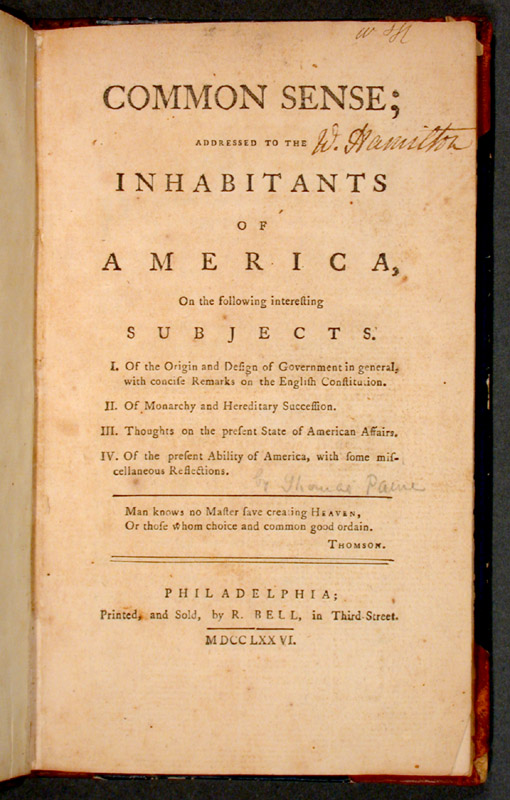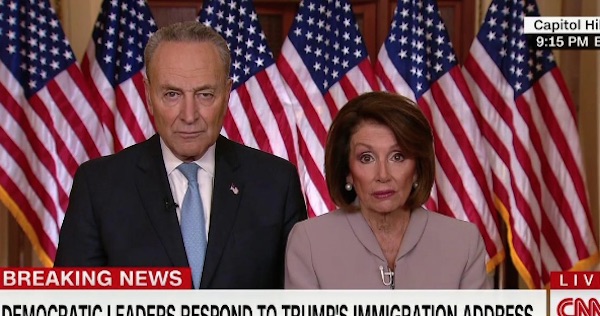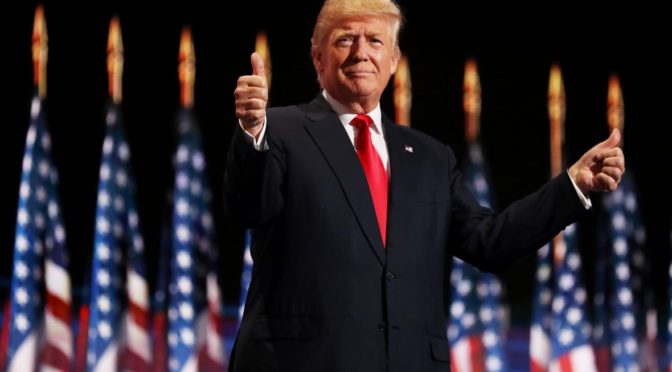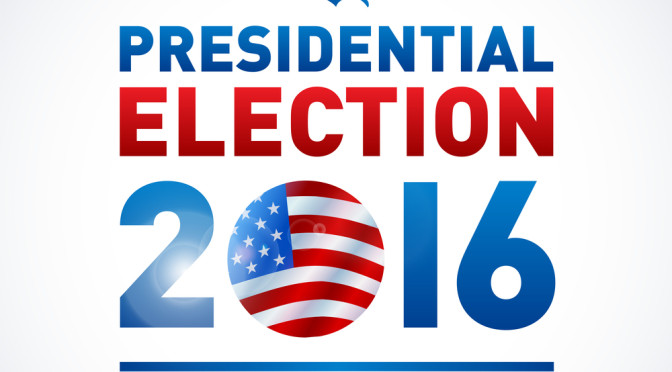by: James Reacher
As a loyal 53rd Regiment reader, I suspect you probably live or have official residency in one of many Southern states that will be voting on March 1. Now, as a practicing member of the political class, I urge you to review the websites of the candidates, watch debates and candidate forums, and make an informed decision on whom to support. However, I also know that the hectic lifestyle of the average 53rd Regiment reader does not support this type of political junkie level obsession. With that in mind, please find a proponent and opponent case for each of the remaining candidates. Please note at the outset that my work has led me to develop very strong opinions about all of these candidates, so do not take it personally when I light up your current favorite. I can assure you that I am lighting up my current favorite as well.
THE DEMOCRATS
Should you be in the incredibly narrow demographic of Democratic primary voter and 53rd Regiment reader, your choices are pretty simple — Secretary Hillary Clinton or Senator Bernie Sanders.
Hillary Clinton
The pro-Clinton case is based on experience. She has been in public service in one form or another since 1983. She has been the First Lady of Arkansas and of the United States as well as a U.S. Senator and Secretary of State. If you want the Democratic Party to nominate the candidate with the most experience and greatest likelihood of winning, you should vote for her.
The anti-Clinton case for primary voters has two main components. The first component is stylistic. Even in a primary, she seem unwilling to fully embrace the progressive wing of the Democratic Party. She is like the wary parent who will dole out a little freedom, but only in moderation and with close supervision.
The second anti-Clinton case is management. She has proven herself to be an utter failure at management. During President Bill Clinton’s first term, Hillary Clinton led the group that attempt to craft a health care reform measure. What she came up was so unpalatable that it never even got a vote in either the House or the Senate, despite the Democrats controlling both chambers. Republicans had their best mid-term elections in generations running against her efforts.
And, I cannot close out this section without mentioning Benghazi. Others in the 53rd Regiment roster can write with greater knowledge and experience on this issue, but it is my strong belief that she failed to provide adequate oversight or concern for U.S. diplomats in harm’s way and this failure directly led to the deaths of Americans. Her continued unwillingness to acknowledge her role in this tragedy is an enormous black mark on her record as a public official.
Bernie Sanders
There is a saying in politics that there are few joys greater than running a campaign in which you have no chance of winning. This seems counterintuitive until you realize how much fun it would be to be able to promise anything you want, say anything you want, and attack your opponent in any way you wish. Make no mistake, this is the type of campaign that Bernie Sanders is running.
The pro-Sanders case is that he is promising everything a liberal has ever dreamed of — universal healthcare, free college tuition, increased minimum wage, punitive taxes on wealthy people and corporations. He is like an Aaron Sorkin character brought to life.
The anti-Sanders case is also twofold. The first side is strategic. He openly admits that he plans to raise taxes on everyone, even middle class voters, to provide universal healthcare. The Democrats already ran a candidate who promised to raise everyone’s taxes. His name was Walter Mondale and he lost 49 states in 1984.
Beyond this strategic concern, were I a Democratic primary voter, I would be wary of voting for someone who has spent so much of his Congressional and Senate career loudly complaining while getting little to nothing done. The Senate has show horses and work horses. Sanders is unequivocally a show horse. Show horses do not know how to close deals and do not know how to marshal their allies for legislative battles. It feels good to vote for the “ice cream for dinner” candidate, but there is a reason no responsible parent allows a diet like that one.
THE REPUBLICANS
This is the deepest Republican Presidential candidate field in my lifetime. With two exceptions, I think all of these men are qualified and would do a fine job as President. GOP primary voters are deciding among the very good and not merely affirming the anointed acceptable choice. I think my writing will reveal the two I find unqualified. The pros and cons of the remaining Republican Presidential candidates proceed below in alphabetical order.
Ben Carson
Were some sort of traumatic brain injury to befall me, I want Ben Carson to be my surgeon. He is a brilliant and accomplished man who success in the medical field has literally inspired books and movies. He is a man of impressive faith and his love for his wife is inspiring.
However, the campaign, debates, and candidate forums have made clear that he is completely unprepared for the Presidency. He appears to have little to no knowledge about foreign affairs and has used his time in debates to give non-seneschal answers including reciting the preamble to the Constitution as his closing statement at a recent debate.
On a personal level, I know a few of his former campaign staffers a little bit and the manner in which they were treated was appalling to me. If this is how he runs a campaign, I shudder to think how he would run the Executive Branch and how he would serve as Commander in Chief.
Ted Cruz
Ted Cruz has the most impressive resume of any of the remaining candidates. He attended Ivy League schools for his undergraduate degree and for law school. He was the editor of the law review journal at Harvard and served as a clerk for the Chief Justice of the U.S. Supreme Court. He also argued multiple cases before the Supreme Court while serving as the Texas Solicitor General. Cruz was also senior staffer for the 2000 Bush Presidential Campaign.
In politics, the campaign Cruz mounted for the U.S. Senate in 2012 is one of the greatest political upsets ever. Cruz ran against the sitting Lieutenant Governor and was outspent almost 3-to-1. He did line up the impressive support of a myriad of political “outsiders” to help nationalize this campaign.
He immediately parlayed this win into a role as a national conservative leader. First term U.S. Senators often keep their heads down and focus on making gains on minutiae. Cruz instead turned himself into a national leader and conservative talk darling. This is quite the feat for someone who had been working as a lawyer in esoteric corporate law prior to the campaign.
The opponent case for Cruz is simple — by all accounts, he is thoroughly unlikable. This is seen in small ways like his college roommate who routinely tweets out derogatory information about him and the DC lobbyist/staffer/consultant world is filled with “you didn’t hear this from me, but…” stories about how unlikable he is. This is also seen in big ways like the fact that zero of U.S. Senate colleagues have endorsed him and the fact that Nikki Haley met with him in private last week and then decided to endorse Marco Rubio.
Someone who cannot get along with what should be his allies and in fact wears his lack of professional respect as a badge of honor is going to have an awful hard time getting anything done as President. I learned long ago that my political opponents and those who disagree with me believe just as strongly as I do in the merits of their case. To get things done, sometimes you need to acknowledge the merits of your opponent’s view and try to find some middle ground. Cruz seems unwilling or unable to do this.
John Kasich
John Kasich is a proven success as a leader in both Congress and as Governor of Ohio. During his time as a member of the House of Representatives, he rose to Chairman of the House Budget Committee. In that role, he got President Clinton to agree to a balanced federal budget, an achievement not seen since men had been walking on the moon and not duplicated by Congressional leaders of either party since.
As Governor of Ohio, he has led the state through an economic renaissance while also balancing budgets and implementing conservative policies. He won two tough statewide elections in a state that a Republican Presidential candidate has not won since 2004.
As a Presidential candidate, he has campaigned with dignity and compassion — two qualities that have been sorely lacking on both sides of this contest to date.
There are two sides to the opposition argument against Kasich. First, despite his recent conversion to campaigning with kindness, Kasich has a lifetime of having a somewhat volatile temperament. He has belittled his political opponents, including questioning their commitment to Christian values and joking to Ohio lobbyists that they are advised to metaphorically get on the Kasich policy bus lest they be run over by said bus.
The second main argument against Kasich is that he is less conservative than the other candidates left. He stretched Ohio law to the limit to get the state to accept Obamacare provided funds to expand those covered by Medicaid, a federal/state program that provides subsidized health insurance to children and to poor people. Opponents of this maneuver were met with the aforementioned question about their commitment to Christian values when they protested to Kasich about it. Kasich has also taken a much more benign view about how to handle illegal immigrants currently in the country who are working and being otherwise law abiding.
Marco Rubio
I had the good fortune to see Marco Rubio speak to a large, receptive audience in Florida in 2010 and can attest that he is one of the most electrifying, engaging, and impressive speakers that I have ever seen. I am positive that he won a lot of supporters, donors, and volunteers that day.
His 2010 campaign for the U.S. Senator also ranks as one of the most remarkable success stories in American political history. Despite having served in elected office since he was 26 years old and serving as Speaker of the Florida House when he was only 34 years old, Rubio was out of elected office and working as a lawyer and adjunct college professor in 2010.
This story gets lost in our “every day a new battle” political culture, but what Rubio pulled off in that 2010 U.S. Senate Election is awe inspiring. He defeated Charlie Crist, the sitting Governor of Florida in the GOP primary and drove Crist out of the Republican Party, a worthy achievement on its own. In the general election, Rubio then won a tough three-way race with Crist now running as an Independent. It takes a lot of courage to look at a seemingly insurmountable electoral challenge and still try. Rubio had the courage to try in 2010.
In addition to his skills as a campaigner and orator, Rubio made friends and influenced people in the Senate. On immigration reform, he spearheaded an effort on immigration reform that got Congress closer to a solution than they had been since 2005. His Senate record is filled with efforts where he brought together disparate voices and worked with his colleagues to propose solutions. Washington is broken and as President he could fix it.
Like the other candidates, there are two main fronts on why a GOP primary voter should oppose Rubio. First, Jeb Bush tried to brand Rubio as the “GOP Obama” and in many ways the label fits. Like Obama, Rubio is relatively inexperienced at federal politics and despite his impressive rhetoric and bridge building skills, he has very little in actual accomplishments as U.S. Senator. For example, his vaunted bipartisan immigration reform effort fell apart in large part because Rubio walked away when the debate over the bill became heated.
The other half of the “GOP Obama” dig is stylistic. On matter big and small, Rubio always seems to be on the verge of being too cute by half. His town hall answers are often two parts — “here is what I would like to do (what the voter clearly wants to hear)” and “here is what I think could actual be done (a more disappointing compromise solution)”. His reputation is that he is on your side until things get tough and then he starts looking out for himself. On a more personal level, Rubio has been a Catholic, a Mormon, and an evangelical Protestant. He now attends both Catholic and Protestant services while identifying as Catholic. Religion is a deeply personal matter, but I do wring my hands a bit about someone who seems unwilling to choose an option.
Donald Trump
If you have made it this far, thank you. I will confess that I have an objection to Donald Trump as a candidate that is based both on disdain for his policy pronouncements and on disgust for his boorish personal behavior. However, like any political science graduate, I can argue it round or square. Just know that the round argument is not sincere on my part.
The proponent case for Donald Trump also comes from Jeb Bush. Jeb is a lot more successful in this essay than he ever was in the campaign! The Bush folk’s people spent weeks trying to derisively label Trump as a “chaos agent”. This supposed insult is one of the fundamental tenets of Trump’s campaign — he will bring tumultuous change to Washington and the world at large with the singular goal of improving America. To voters drawn to Perot in 1992 and to Buchanan in 1996 and to the Tea Party in 2014, this disdain for Washington and promise of massive change and upheaval to the establishment in Washington is a siren song calling them home. If you think the country is failing and your station is life is declining because of that failure, this promise to restore the American greatness of the past holds enormous appeal. You’re incorruptible and bold leader will single handedly run roughshod over all the vexing obstacles in the way to make America great again.
The two fold opponent case against Trump is both personal and policy based. By any objective standard, Donald Trump is a loathsome human being. His ex-wife, Ivana, listed “cruel and inhuman treatment” as the grounds for their divorce. More recently, he has mocked a disabled reporter, responded to his critics with childish name calling and threats of violence, and implied that Megyn Kelly’s menstrual cycle was the primary cause of her tough questioning of him. Presidents have to spend vast amounts of time and energy convincing would be opponents to support Presidential policies. Someone who cannot handle the crucible of a Presidential campaign is going to have a difficult time being strong enough and wily enough to outmaneuver his opponents.
On policies, Trump is proposing things that are not possible. Mexico is not going to send payments for the construction of a border fence. Presidents cannot unilaterally impose trade tariffs on imported foreign goods. He needs laws, treaties, and trade agreements to advance these goals. You need two sides willing to negotiate to make deals. I have serious doubts that Mexican leaders will want to meet with someone who characterized their immigrants as violent criminals and that Congressional leaders who have spent the past year being called do nothing losers will be eager to join Trump at the negotiating table.
In addition, during the debates and the candidate forums, Trump has both demonstrated a frightening lack of understanding of even basic federal policies as well as a willingness to change his positions on the fly to better appeal to his audience. For example, until 2012 he was a forceful pro-abortion advocate. Then, when he thought about running for President in 2012, he declared himself pro-life. This year he has urged Congress to fund Planned Parenthood and said recently that Planned Parenthood does “wonderful things having to do with women’s health.” Someone this thin on policy who also seems to lack a moral core for policy decisions gives me a lot of pause about what they would do as President.
So now we have mercifully come to the end and I hope this has been helpful. Armed with this knowledge, I want to urge you to vote. Your vote does make a difference both cumulatively and individually. All of the states voting between March 1 and March 14 will be awarding delegates on a proportional basis, so even if you candidate does not win your state, they could still win delegates. Also, some of these races have been very close. The Iowa Democratic caucuses actually went to coin flip tiebreakers in several locations.
Your vote matters. Use it!
 =518
=518  =639
=639









